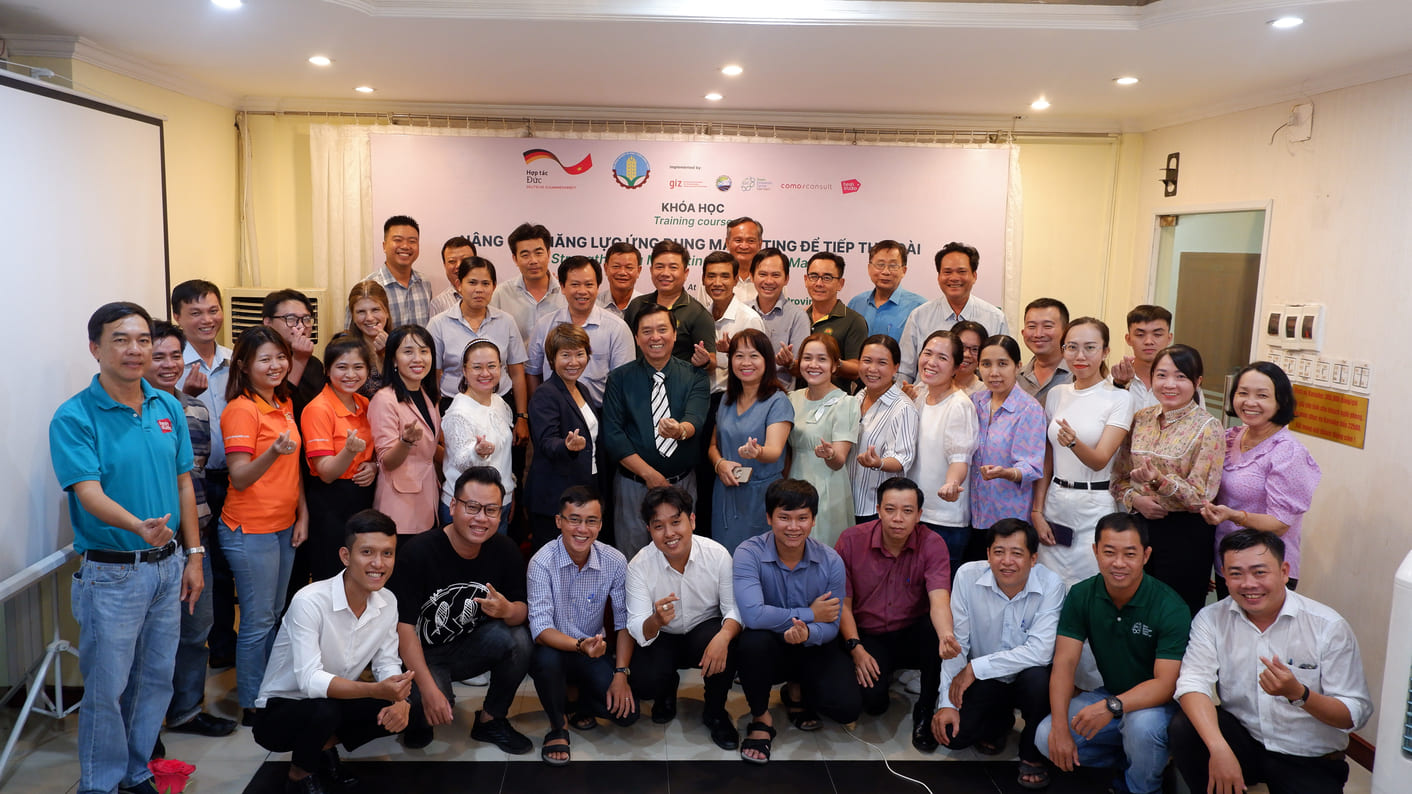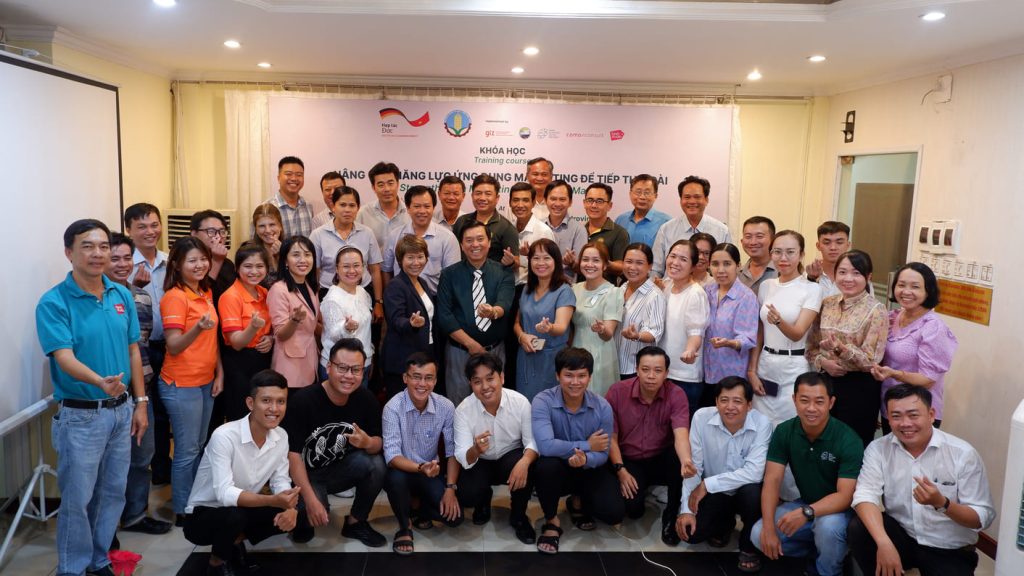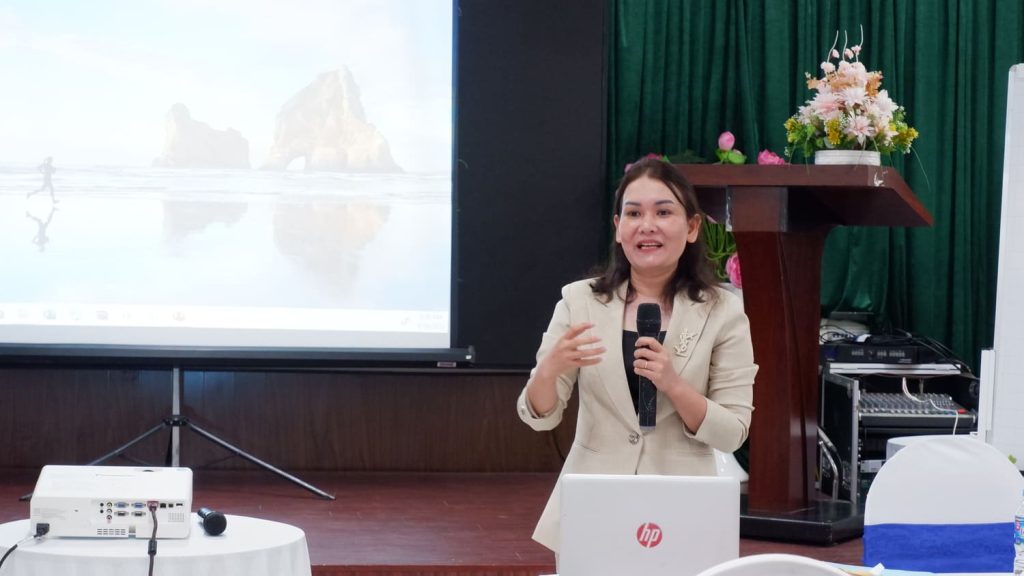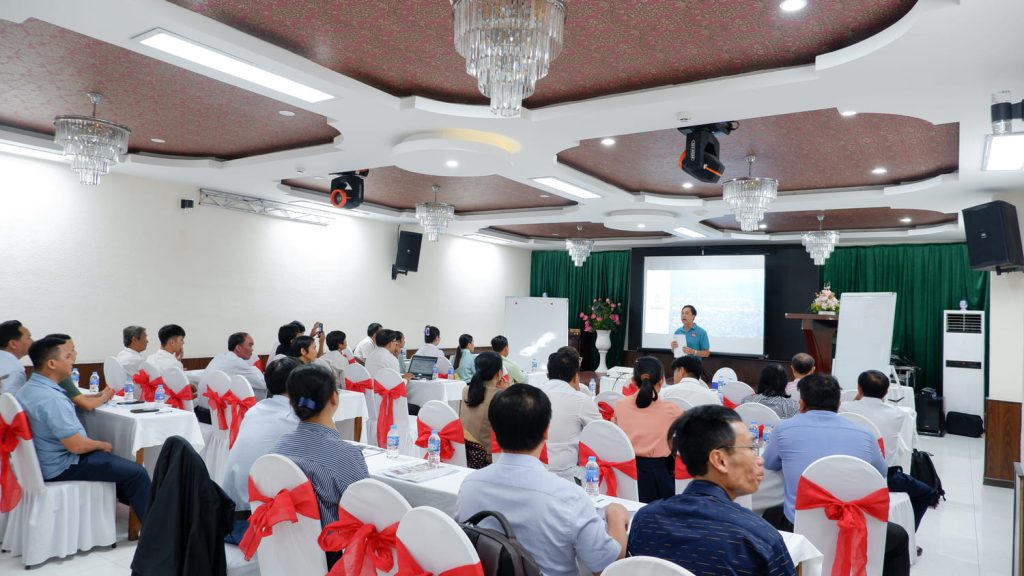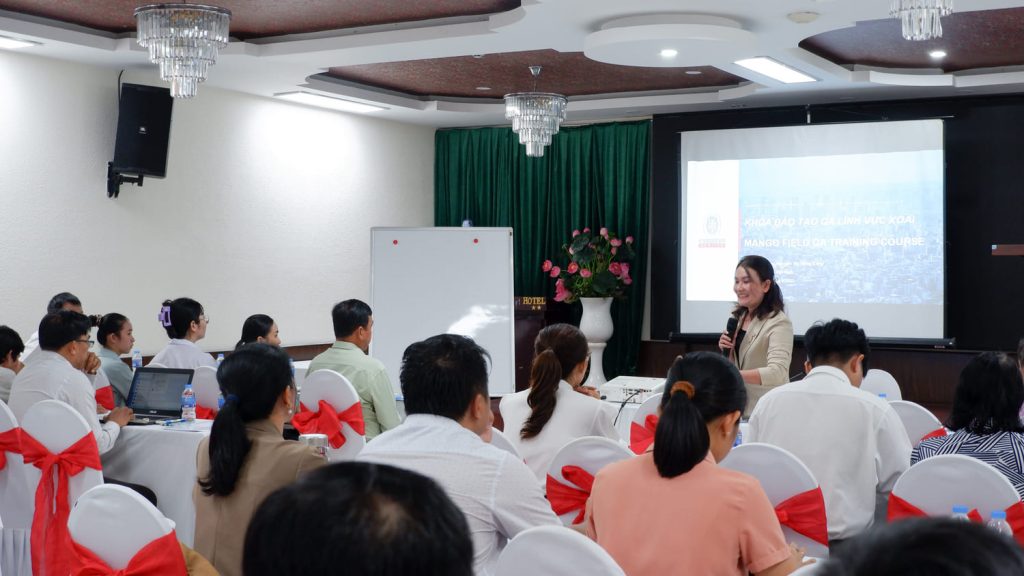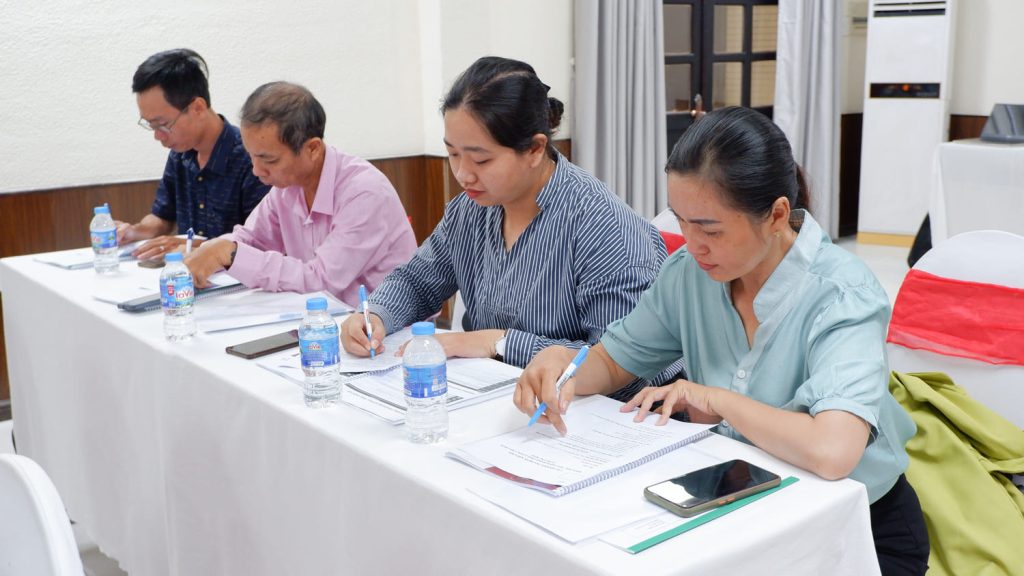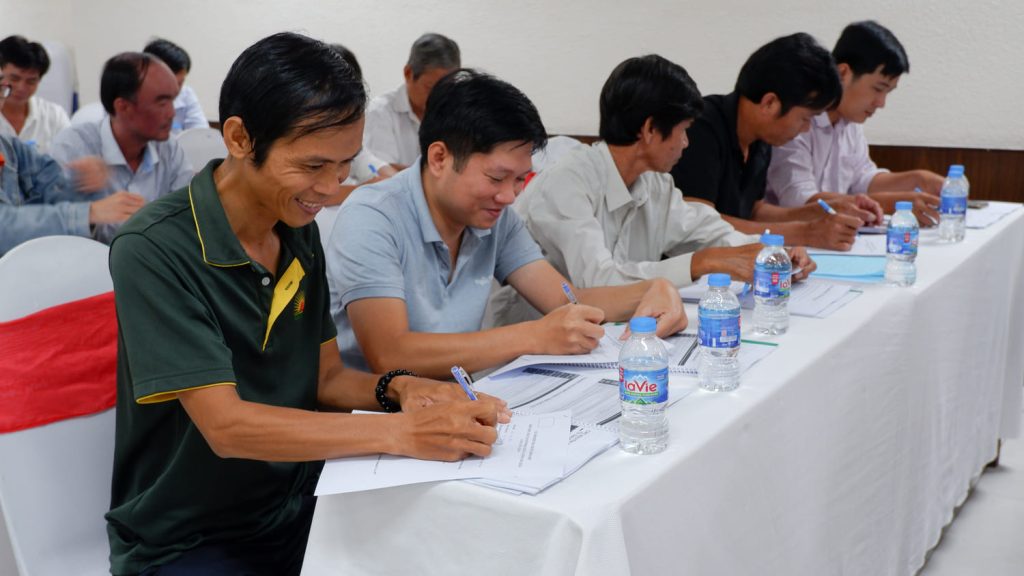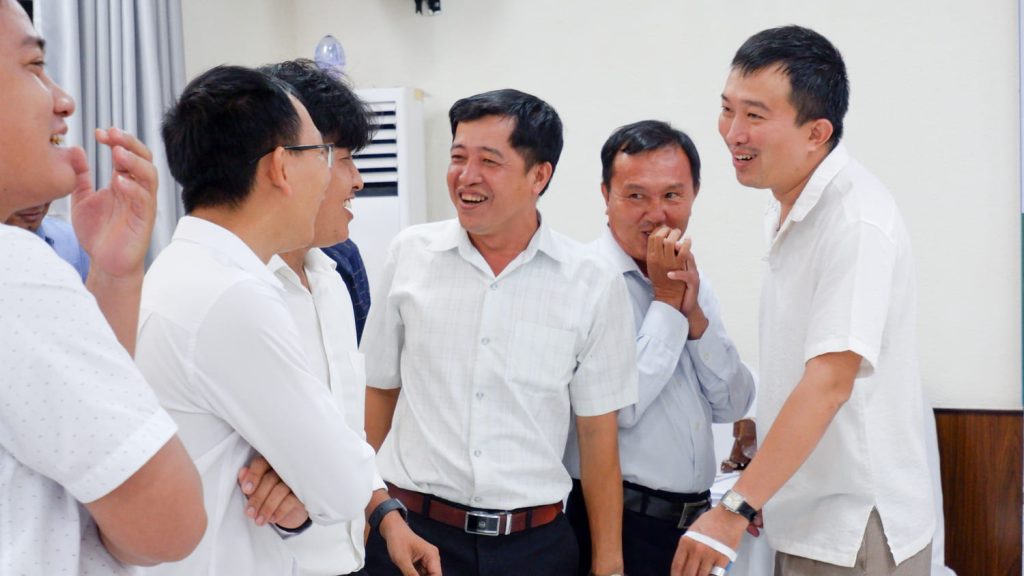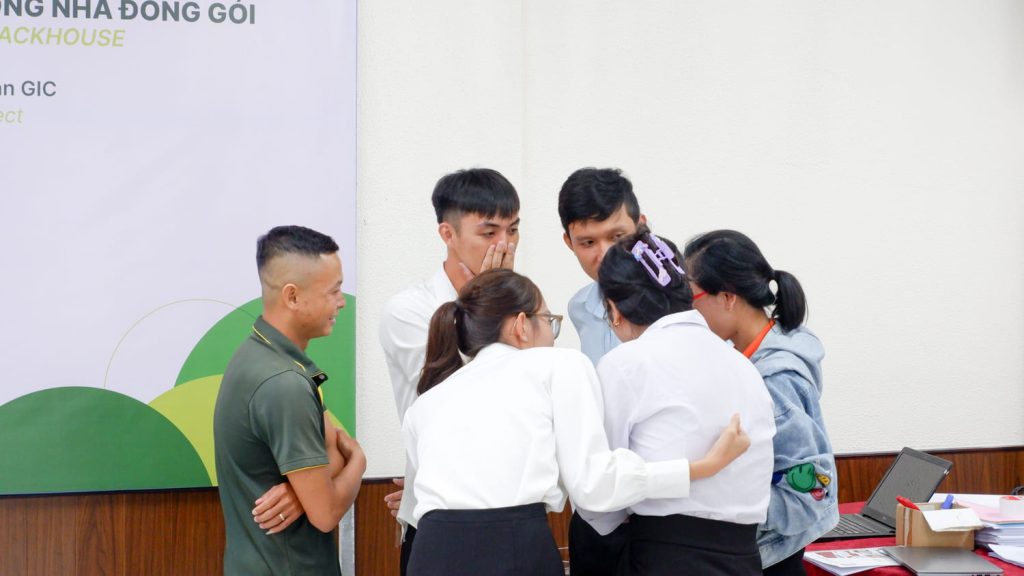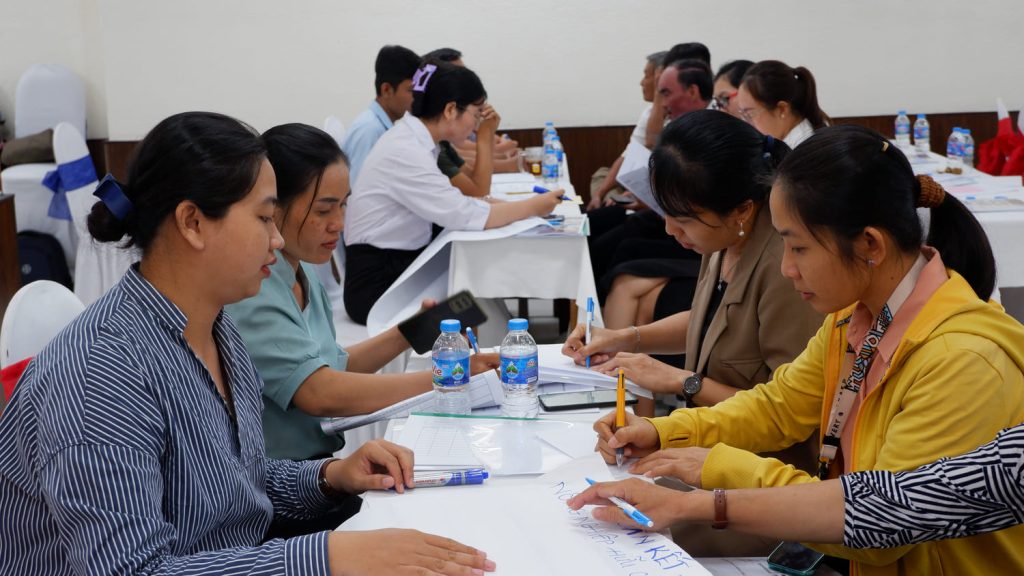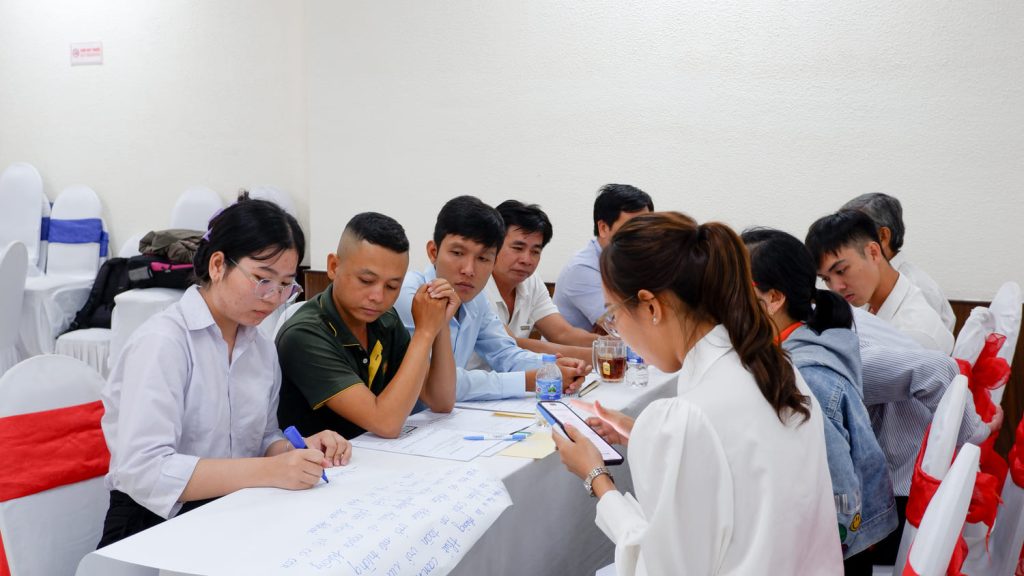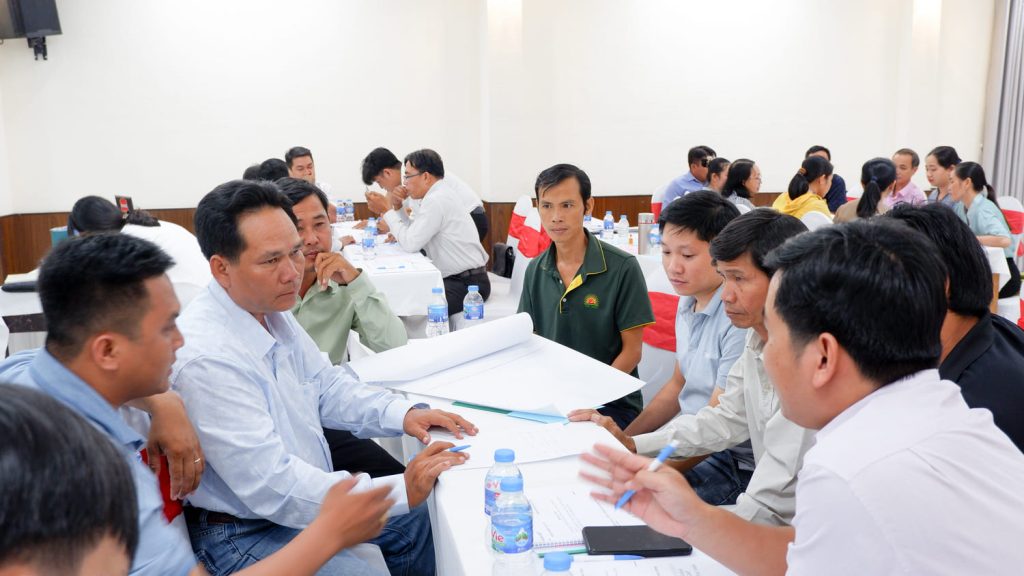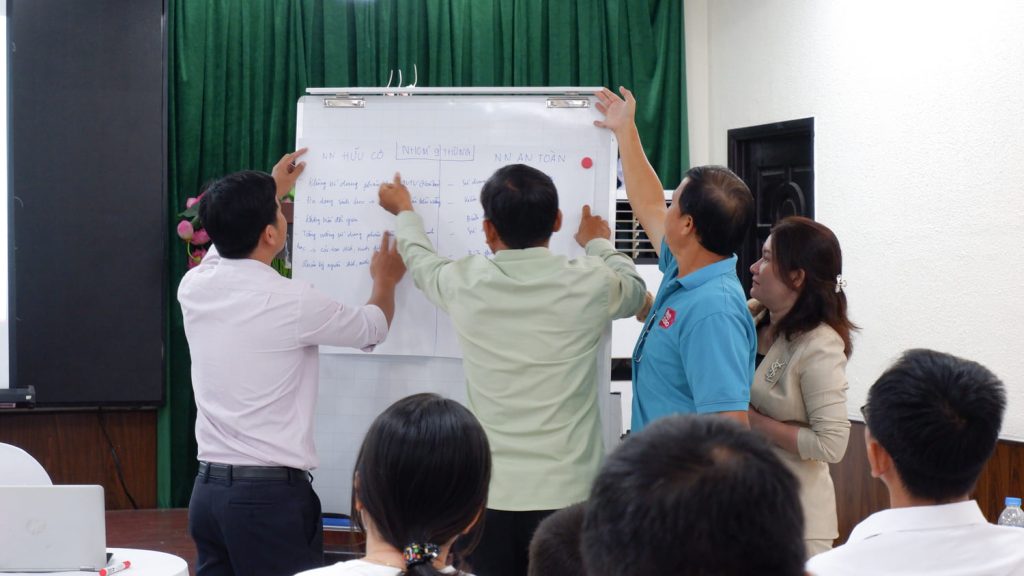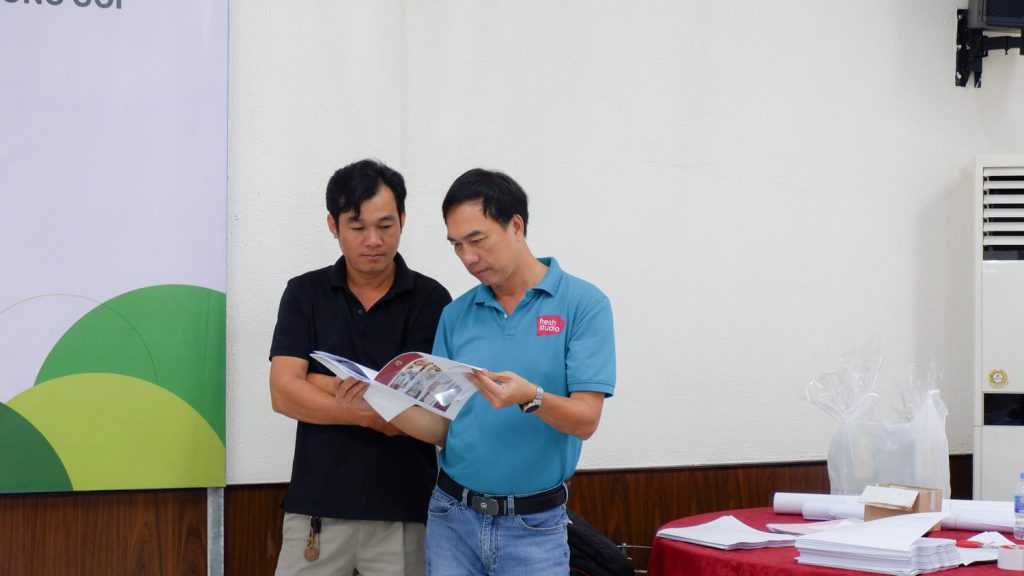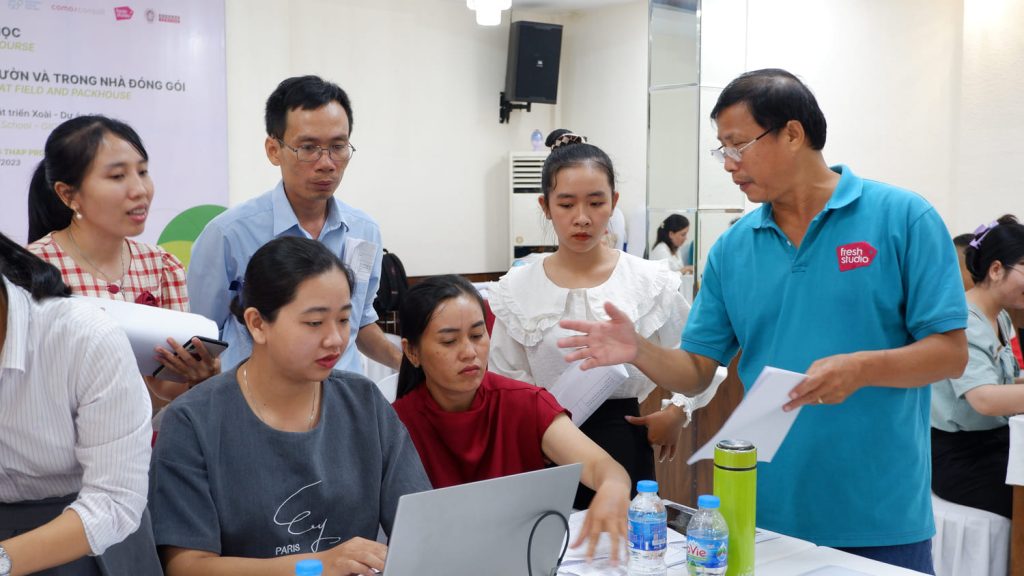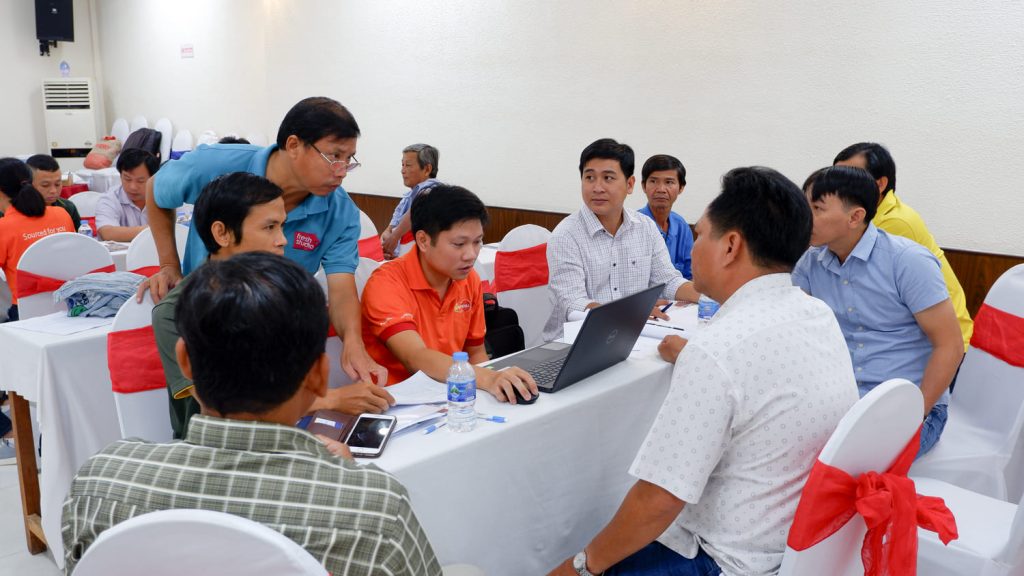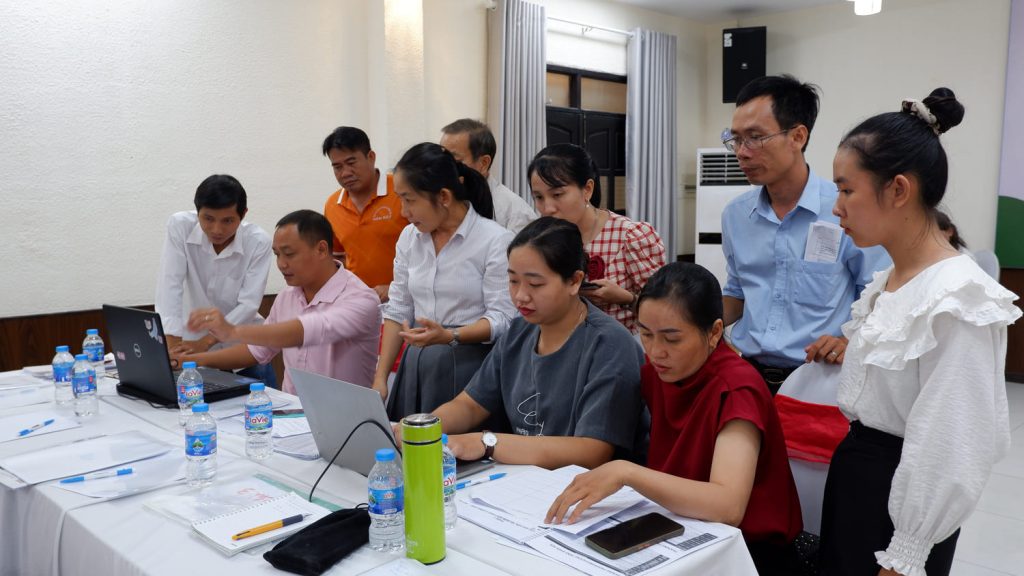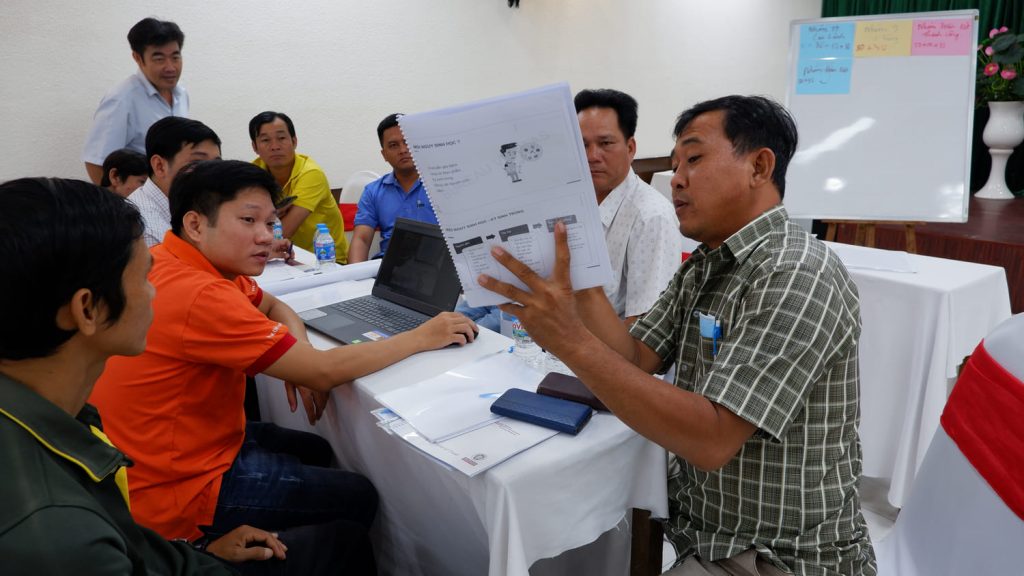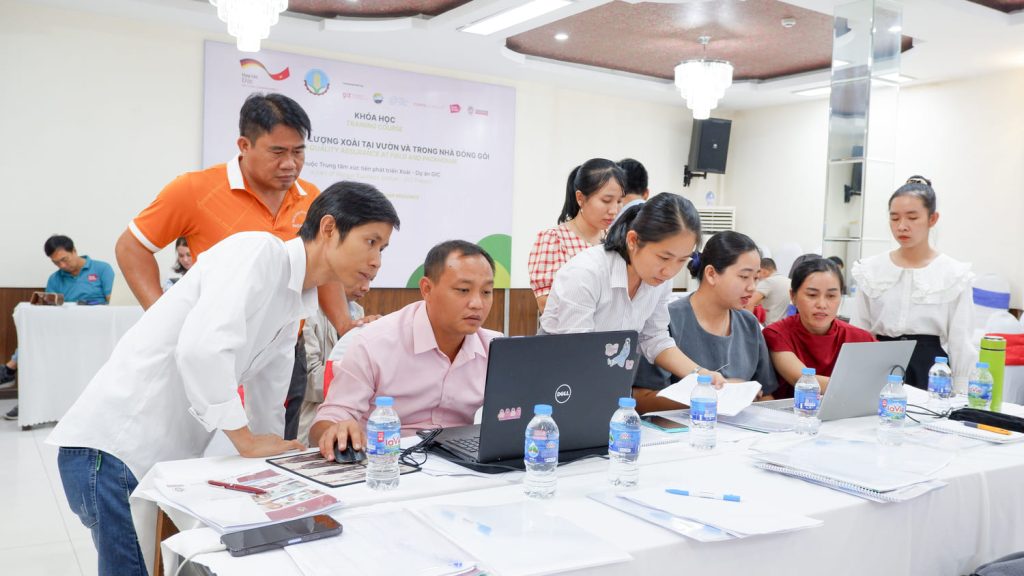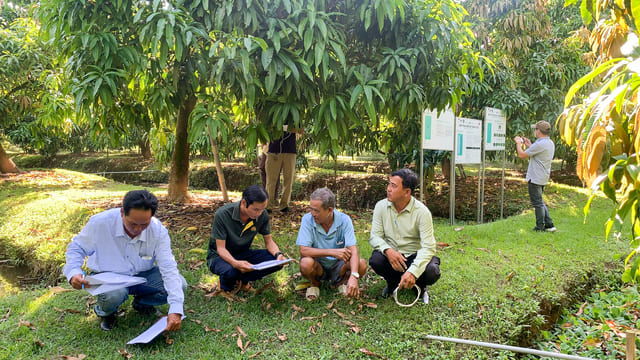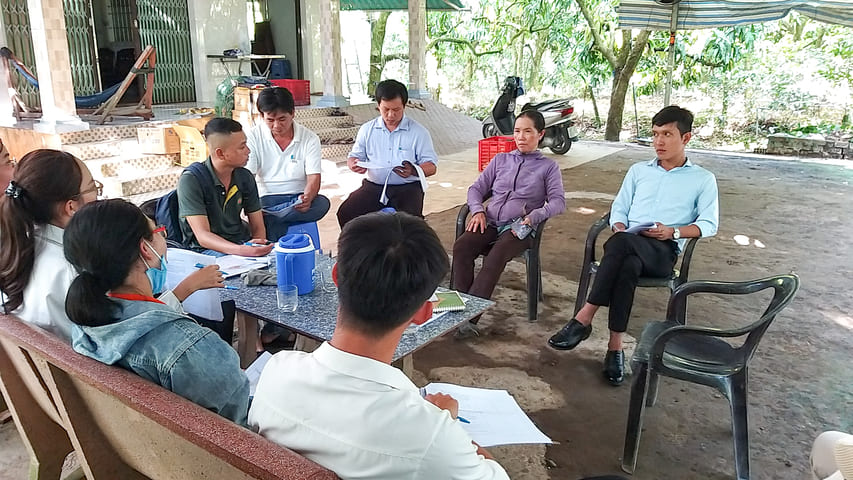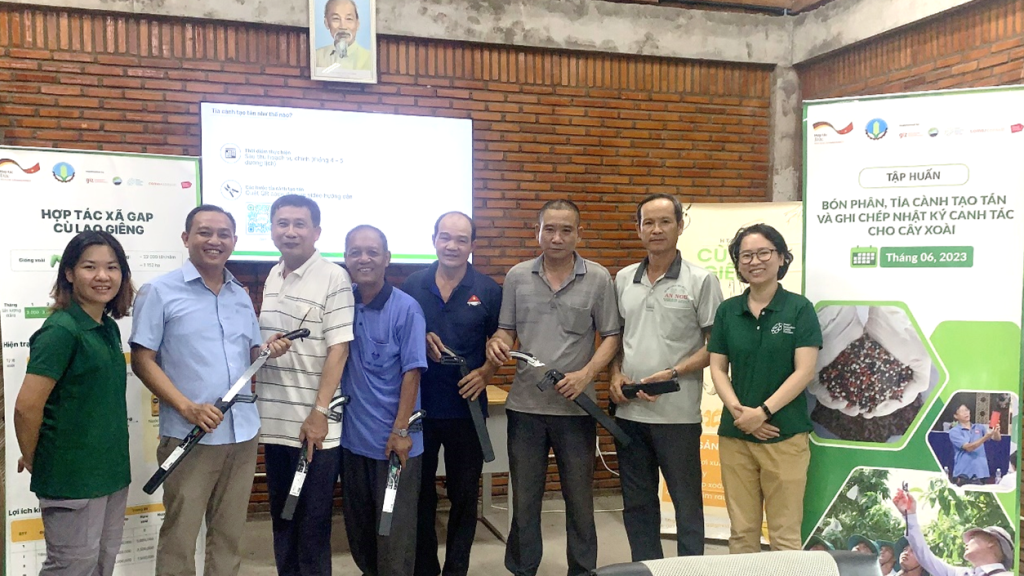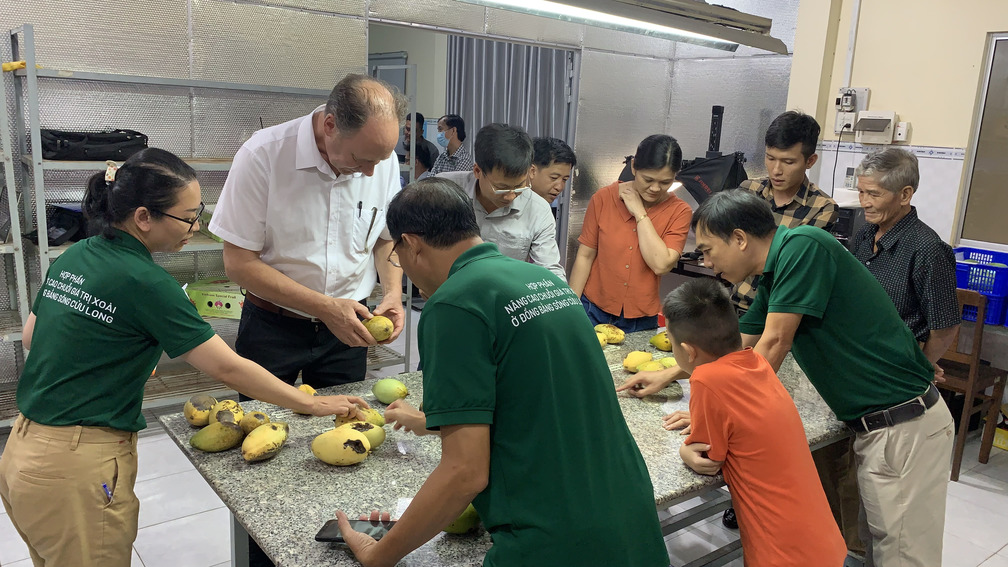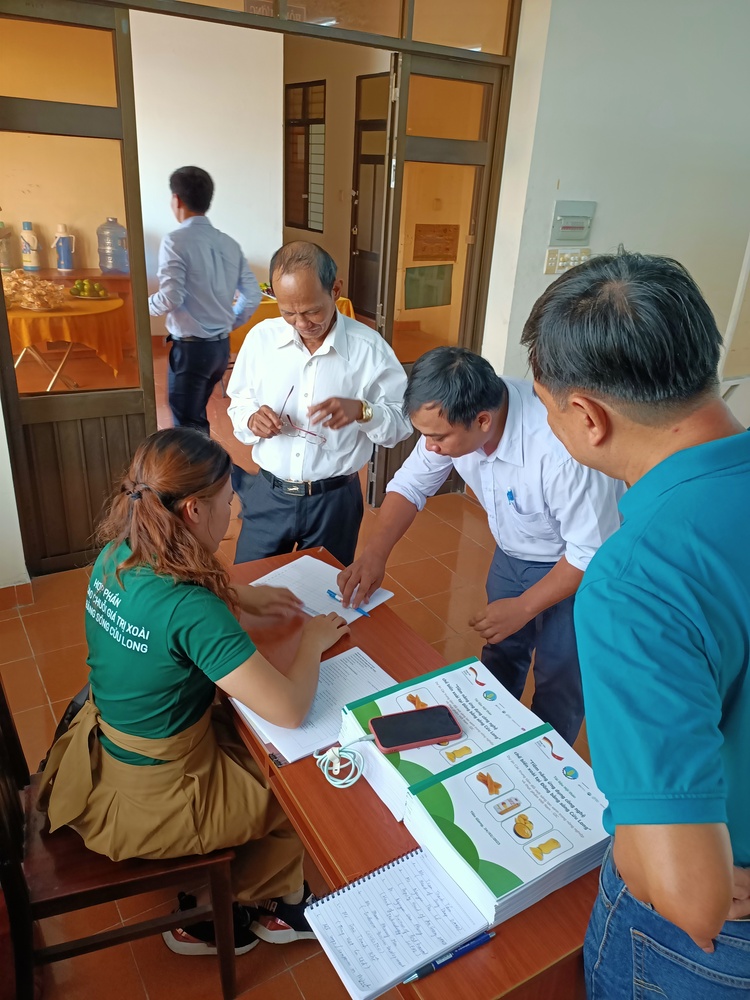From 14 – 18 January 2024, Fresh Studio organized a study tour to the mango sector in Thailand for Vietnamese partners in the project: “Strengthening the mango value chain in the Mekong Delta” under the program Green Innovation Centers (GIC) for the agriculture and food sector (Vietnam country package). A delegation of 18 representatives from cooperatives, companies, and agriculture officers partnering in the project joined the study tour.
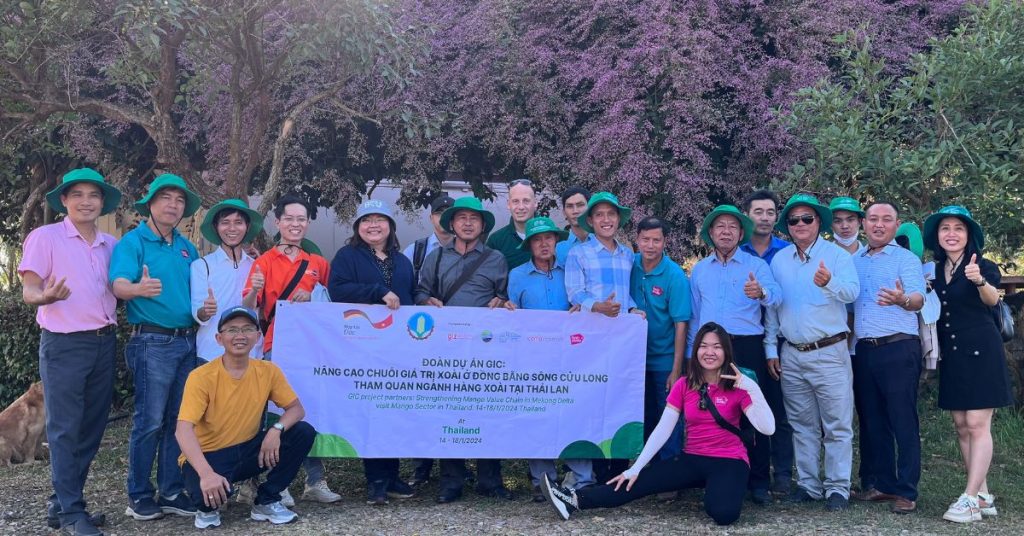
The valuable experience exchange of Vietnam and Thailand in mango cultivation
The study tour to Thailand is one of the project activities to enhance collaboration, share knowledge, and enhance the capabilities of the project partners regarding the production and post-harvest management of mango fruits and gaining a better understanding and ideas how to further develop mango value chains in the Mekong delta of Vietnam.
The heart of the study tour revolved around visits to mango farms in Thailand. Participants had the chance to witness firsthand the innovative techniques employed by Thai farmers to grow mangoes successfully. These farms served as living classrooms, enabling the delegation to learn about various aspects of mango cultivation, such as pruning, soil management, pest control, and the application of fertilizers. Engaging with local farmers allowed the participants to gain practical insights and ask questions directly related to the challenges they face in their mango cultivation endeavors.
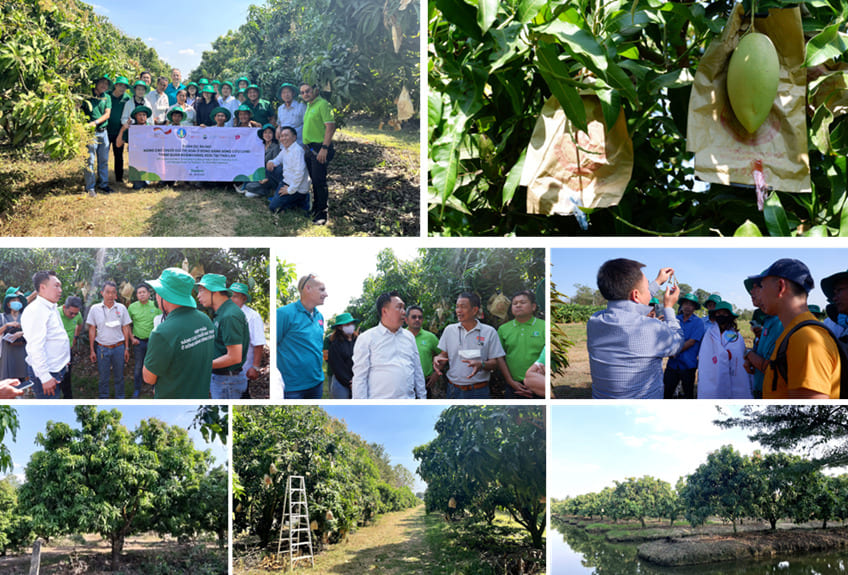
The exchange of knowledge was a two-way street during the study tour. The representatives of the project partners joining the study tour had the opportunity to share their own experiences and expertise in mango production in Vietnam. This mutual exchange enriched both parties, fostering a collaborative environment where best practices from different regions could be combined for the benefit of all. The interaction with Thai farmers was not limited to the fields; it extended to discussions on market trends, post-harvest handling, and the overall mango value chain.
One-of-a-kind study tour for mango innovators
One of the highlights of the study tour was the visit to the Fruit Research Institute at Kasetsart University in Thailand. Participants were given an exclusive insight into the latest advancements in mango breeding programs. The institute showcased ongoing research and development initiatives aimed at enhancing mango varieties, improving disease resistance, and increasing overall crop productivity. This segment of the tour provided a valuable platform for the participants to explore potential collaborations in research and development within the mango sector.
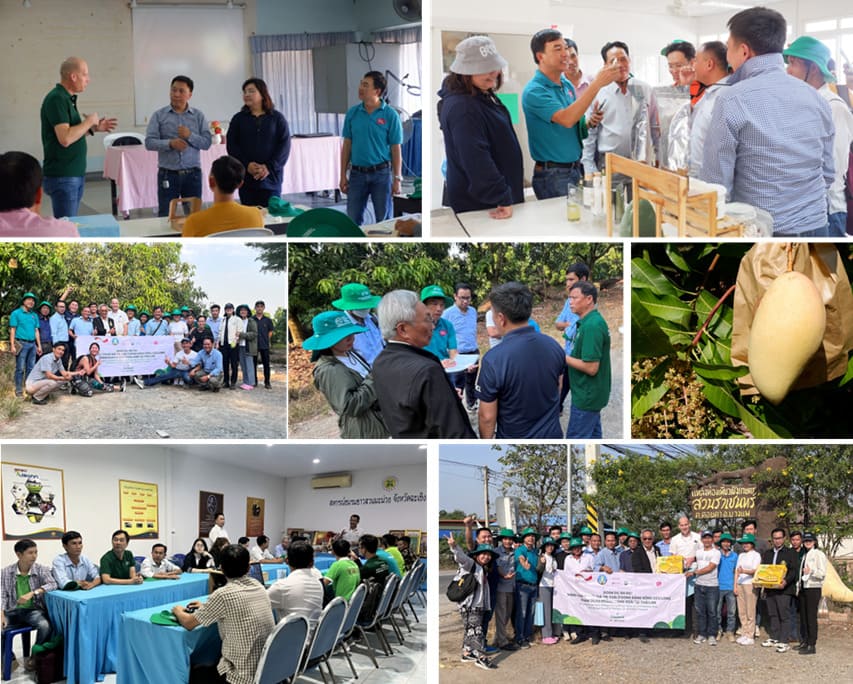
The study tour included a visit to Rachen Farm, a leading mango producer in Thailand. Participants had the opportunity to learn about pre and post-harvest practices that contribute to the production of high-quality mangoes. This aspect of the tour covered topics such as optimal harvesting techniques, de-sapping, hot water treatment, transportation methods, storage conditions, and packaging practices. The firsthand exposure to these advanced practices equipped the participants with valuable insights that can be implemented in their own mango cultivation processes back home.
| The Green Innovation Centre Viet Nam is a country package of the Green Innovation Centres in the Agriculture and Food Sector (GIC) Program. This global program is funded by the German Federal Ministry for Economic Cooperation and Development (BMZ) within the framework of the special initiative ‘One world – No Hunger’. The GIC Viet Nam Project is jointly implemented by the Ministry of Agriculture and Rural Development (MARD) and GIZ. |




